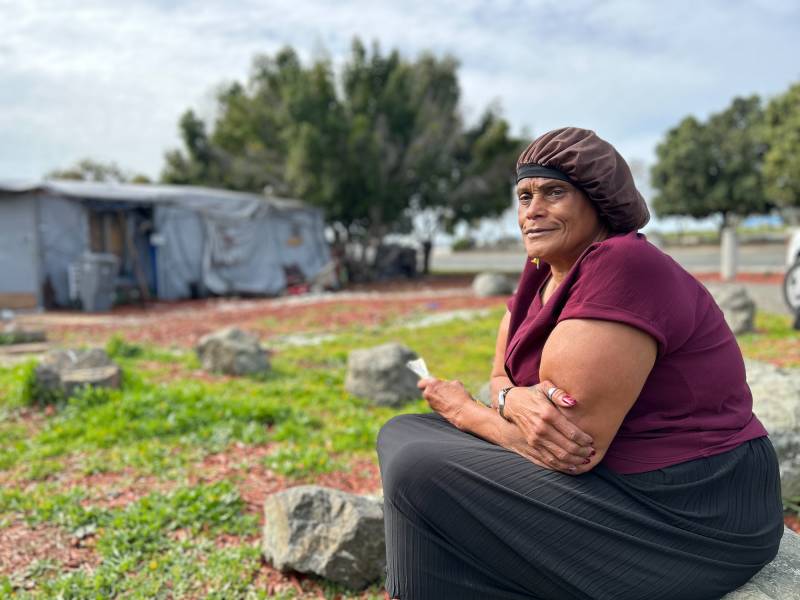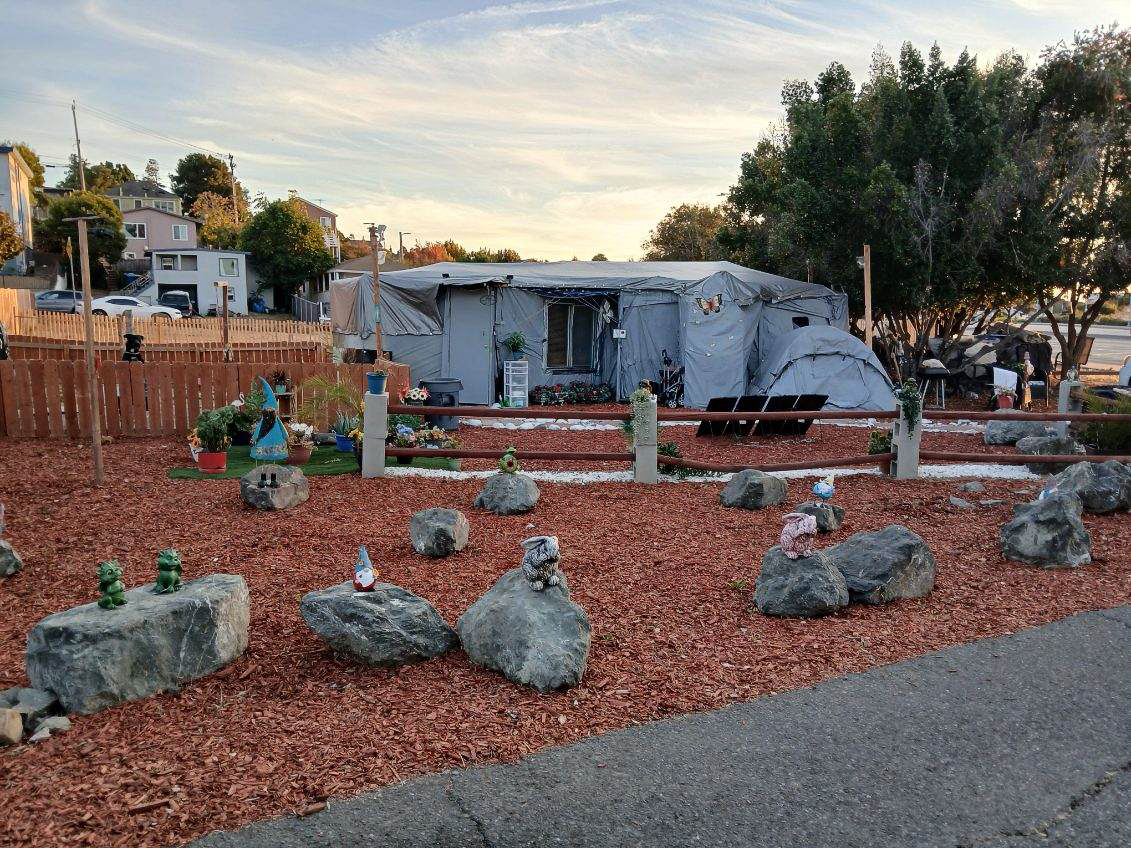Over the course of two years, Evelyn Alfred built a home on vacant city-owned land in Vallejo. Using wooden beams, insulation, tarps and some experience in construction, she built a two-room structure, complete with windows and blinds, a shower, leather couches and a raised bed.
For Alfred, who is 64 years old, has several disabilities, and has been unhoused for more than two decades, her makeshift home provided shelter and stability.
But when city officials told her she had to leave in late October, her eviction seemed all but inevitable. Just a few months earlier, the Supreme Court had given cities greater leeway to remove people living in structures like hers, under threat of fines and jail time — even if no alternative shelter was available.
“All of a sudden, I got a notice, [a] lady came and said you got 72 hours notice … And I said ‘I can’t move in 72 hours,’” Alfred recalled. “There’s no way.’”
She sued. And earlier this month, a district court judge determined she could stay until the case is resolved in a victory legal advocates say is the first of its kind in the country since the Supreme Court’s order last year — and one they say could have broad implications for legal fights over homeless encampments across the nation.


